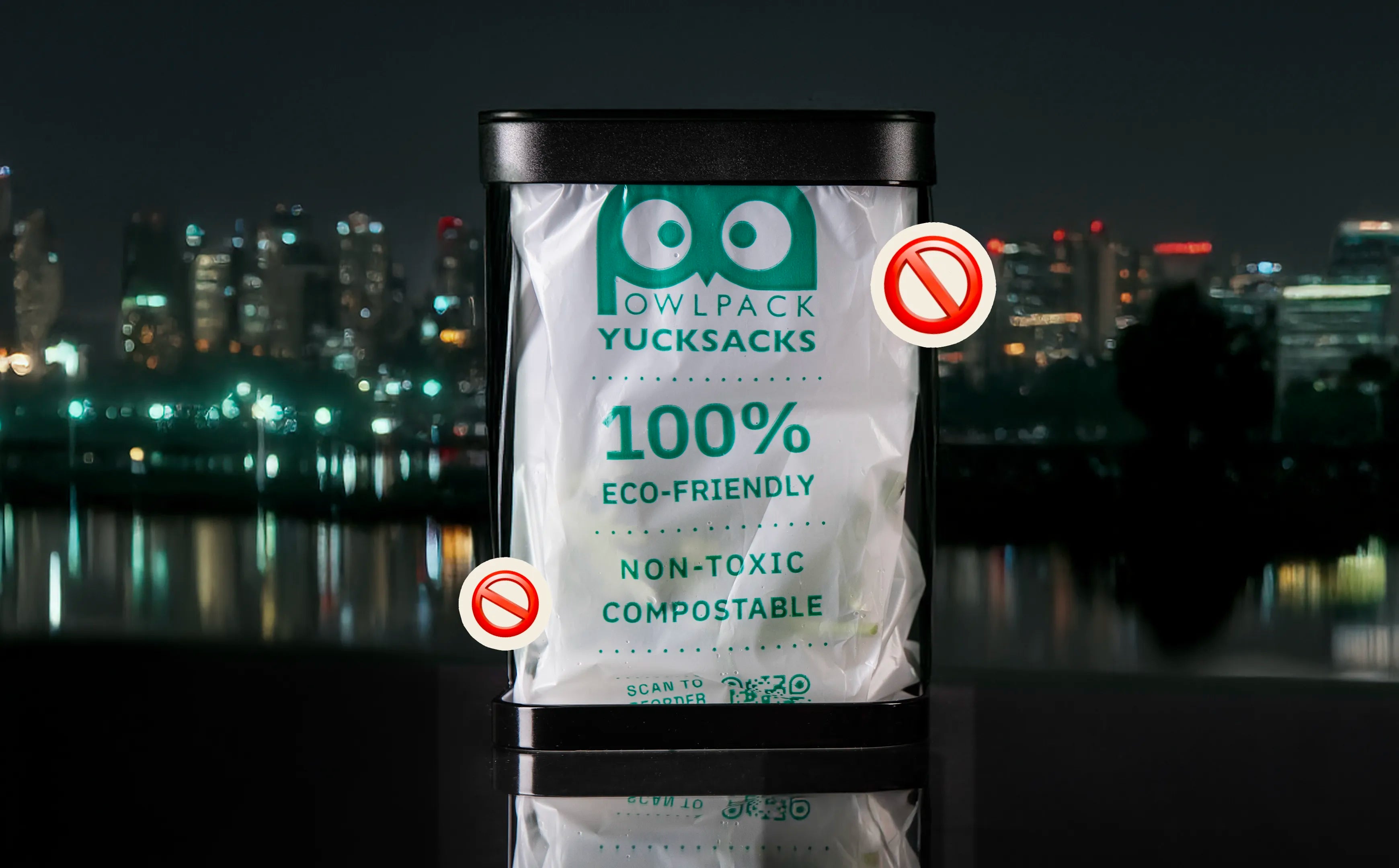Why Some Cities Reject Compostable Plastics—and What You Can Do
Compostable plastics sound like the perfect solution: plant-based materials that look and feel like plastic but safely return to the soil. So why do some cities and composting programs reject them?
The answer has less to do with the bags themselves and more to do with the challenges of waste management systems. Let’s explore why compostable plastics aren’t always accepted—and what you can do as a consumer to make sure your efforts actually count.
🚫 Why Some Cities Say “No” to Compostable Plastics
1. Limited Infrastructure
Not every city has industrial composting facilities. Without high heat, moisture, and controlled conditions, compostable plastics may not break down fast enough in municipal systems.
2. Contamination Concerns
Facilities often struggle to separate compostable plastics from conventional ones. Many look nearly identical, and a few plastic straws or bags in the mix can ruin a whole compost batch.
3. Mixed Messaging
Because “biodegradable” and “compostable” are often confused, some cities adopt a blanket ban to keep their compost streams cleaner. It’s easier to say “no bags at all” than risk contamination.
4. Processing Costs
Sorting, testing, and verifying compostable plastics can take extra time and resources. Some facilities opt out to keep costs lower.
🌱 What You Can Do
Even if your city rejects compostable plastics in the green bin, there are still ways to use them responsibly:
✅ Home Composting
If you have a backyard bin or community garden with active composting, certified compostable bags (like Owlpack Yucksack Bags) can break down fully within months.
✅ Check Local Guidelines
Always confirm what your city accepts. Some allow certified compostables in commercial bins, while others prefer you leave them out.
✅ Choose Certified Products
Look for BPI or TÜV Austria certification. These logos prove the bag has been tested and meets composting standards.
✅ Use for Collection, Then Empty
If your program doesn’t allow compostable bags, you can still use them to collect scraps in the kitchen—just dump the contents into the bin and compost the bag at home or in a facility that accepts it.
🌍 The Bigger Picture
Rejecting compostable plastics isn’t a sign that they don’t work—it’s a reflection of local infrastructure and the complexity of waste management. As more facilities upgrade, acceptance of compostables will grow.
In the meantime, being informed and flexible ensures your sustainability efforts aren’t wasted. When used in the right conditions, compostable bags really do close the loop—turning food scraps and packaging back into healthy soil.
✨ Takeaway: Don’t give up on compostable bags—just make sure you use them where they’re accepted, and keep pushing for better composting infrastructure in your community.



Share:
The Lifecycle of a Compostable Bag: From Corn Starch to Soil
Yard-Waste Solutions: Best Compostable Bags for Leaves and Garden Debris